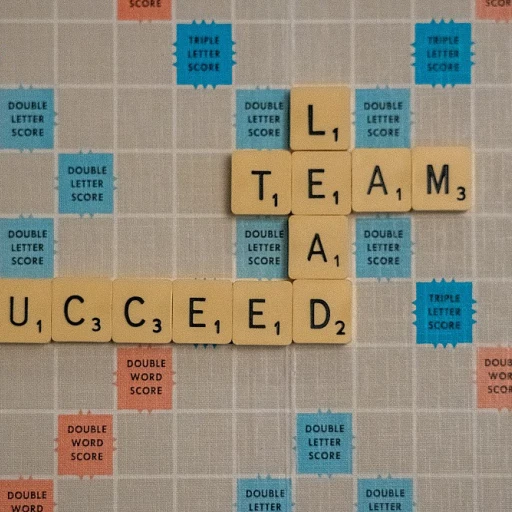
Understanding the Coaching Relationship
Creating a Foundation of Trust in Coaching
In the journey towards upskilling, establishing a successful coaching relationship plays a pivotal role. Effective coaching is not merely about instruction; it is about fostering a connection built on trust and mutual respect. This core element lays the groundwork for growth and development, encouraging clients to feel open and supported. A coaching relationship hinges on trust, steering the entire process towards meaningful outcomes. Trust coaching enables the coachee to embrace vulnerability, thereby unleashing the full potential of the coaching process. When trust is present, clients feel empowered to express their personal and professional aspirations, laying the groundwork for setting clear goals and expectations later on. To develop a robust foundation of trust, active listening becomes indispensable. Coaches must hone this skill to truly understand the client's needs, desires, and challenges. By doing so, they not only affirm the coachee's experiences but also demonstrate their commitment to the client's journey. Effective communication between coach and client establishes a transparent path forward, leading to a deeper understanding of personal and leadership development needs. Clear dialogues ensure that clients feel engaged and valued throughout each stage of their upskilling journey. Understanding the dynamics of the coaching relationship helps both parties navigate the nuances of leadership development more effectively. By recognizing each other's roles and building trust, coaches and clients can collaboratively work towards achieving their goals, overcoming challenges that arise along the way. To further explore strategies for team development and the art of building trust within mentor-mentee dynamics, consider reading more about effective mentoring strategies for team development.Identifying the Right Coach for Your Needs
Finding Your Suitable Mentor
Identifying the right coach plays a critical role in laying the foundation for a successful coaching relationship. This process requires careful assessment and understanding of your personal and professional upskilling needs. An effective coach should possess the expertise and authority to facilitate your growth effectively. Their approach must resonate with your learning style and professional aspirations.
Trust is the cornerstone of the coaching process, enabling clients to feel supported and open during sessions. A coach's capacity to build trust can inspire confidence and motivate coachees to overcome obstacles. Active listening and empathy are key traits to look for, as they demonstrate the coach's dedication to understanding the client's unique context and goals. A relationship built on mutual respect fosters an environment that facilitates both personal and leadership development.
Consider your specific goals and desired outcomes when contemplating potential coaches. Whether you're focusing on leadership development, employee engagement, or enhancing specific skills, a coach aligned with these objectives will reinforce the coaching relationship. It’s essential that the selected coach possesses not only the requisite skills and qualifications, such as those recognized by major institutions like the International Coaching Federation (ICF), but also a proven track record in helping clients achieve their defined objectives.
Exploring recommendations or testimonials can provide insight into how previous clients have benefited from the coaching relationship. Past clients' experiences can be indicative of the coach's ability to tailor their approach to diverse personal and professional environments. To further understand the potential impact of coaching, read article Unlocking Potential: The Power of Mentorship Programs for Adult Upskilling.
Ultimately, choosing the right coach involves both an assessment of tangible qualifications and a sense of intuitive alignment. This alignment becomes the driving force behind the coach-client partnership, leading to fruitful results over time and supporting sustained personal and professional development.
Setting Clear Goals and Expectations
Establishing Clear Objectives for Transformative Coaching Experiences
To make the most out of a coaching relationship, it's fundamental to set clear objectives that align with the coachee's aspirations and the coaching process itself. Establishing these goals ensures both coach and client have a shared vision for what constitutes success. This is essential for building trust and fostering an environment where clients feel heard and valued.
The process begins with a mutual agreement on the outcomes desired from the coaching sessions. This step sets the stage for effective coaching by providing a road map that can guide the development of leadership skills, personal growth, or professional development. Whether the focus is on enhancing leadership abilities or employee engagement, understanding what the coachee aims to achieve helps streamline efforts.
A successful coaching experience involves more than just vague aspirations. Clearly defined, measurable goals bring clarity to the coaching relationship, enabling both parties to gauge progress over time. This clarity is crucial when navigating challenges that could arise, ensuring that the journey remains on track.
Furthermore, effective communication in the coaching relationship plays a pivotal role in aligning these goals with the coachee's real-life challenges. Discussing potential hurdles and outlining strategies to overcome obstacles is part of crafting a path toward achieving the clients' aspirations without unnecessary detours.
Remember, a coach must also be adaptable, revisiting and, if necessary, recalibrating goals to ensure they continue to align with the evolving needs of the client. This adaptability fortifies the trust coaching engenders, making the coaching process not just an engagement but a partnership that can drive meaningful change.
To explore further insights on refining your coaching relationships, visit our guide on enhance your skills with Hsing Yi online training, a resource rich in techniques for building successful coaching frameworks.
Effective Communication in Coaching
Enhancing Communication in the Coaching Relationship
Effective communication is the backbone of a successful coaching relationship. It is crucial for the coach and the client to engage in open dialogues, fostering a space where ideas and concerns can be shared freely. Trust plays a pivotal role in this dynamic, and it is achieved through consistent active listening and empathetic responses. One of the first steps in establishing robust communication is setting boundaries and understanding the communication style of both the coach and the coachee. This helps in tailoring the interaction to fit personal needs and preferences, increasing the efficiency of the coaching process. Moreover, regular feedback is a vital component of this interaction. Effective coaches ensure that feedback is constructive and aligned with the client's goals, aiding in the personal and professional growth of the coachee. This ongoing feedback loop also allows both parties to adjust their strategies and expectations, ensuring alignment with the overarching goals set initially. For any coaching sessions to be fruitful, it is essential to overcome communication barriers. These can include language differences, misinterpretations, or even technological challenges in virtual environments. Coaches are encouraged to foster an environment where clients feel comfortable expressing their thoughts without fear of judgment, thus solidifying the trust needed for the relationship to thrive. Another element of effective communication is being clear and concise in setting goals and expectations, which can significantly impact the coaching relationship. Establishing these at the outset will fill any potential gap between client expectations and reality, ensuring time is used efficiently to propel the coachee towards leadership development and other personal or professional objectives. Ultimately, by building trust and maintaining transparent communication, both the client and the coach work collaboratively towards attaining set goals, reinforcing the value of leadership and personal development throughout the coaching journey.Overcoming Challenges in Coaching Relationships
Addressing and Overcoming Common Obstacles
In the journey of upskilling through coaching, challenges are a natural part of the process. Addressing these obstacles effectively can lead to a more productive coaching relationship. Here are some strategies to consider:
- Building Trust: A foundational element for any successful coaching is trust. A coach should foster an environment where clients feel safe and valued. Trust is built through consistent and transparent communication, which forms the basis of a strong, effective coaching process.
- Communication Barriers: Miscommunication can hinder progress. Both coach and coachee need to engage in active listening. It's crucial that coaches confirm understanding and provide feedback in a way that supports personal and professional growth.
- Alignment of Goals: Misaligned goals can disrupt coaching sessions. It is important that both the coach client agrees on objectives and that these goals remain a focal point throughout the coaching journey. Frequent reviews and adjustments can help keep the process on track.
- Time Management: The coaching relationship must respect time commitments. Late arrivals or poor time management can impact leadership development and employee engagement. Establish clear schedules and honor set times to maintain momentum.
- Resistance to Change: Individuals often resist change, even when beneficial. Coaches play a vital role in gently challenging clients to explore new paths and bolster their development.
By proactively addressing these challenges, the relationship between coach and client becomes more productive. The endurance of the partnership leads to mutual growth and substantial improvement in achieving coaching goals, ultimately resulting in successful coaching relationships.
Measuring Success in Upskilling Through Coaching
Evaluating Progress and Success in the Coaching Journey
In the quest for effective coaching relationships aimed at upskilling, assessing the achievements and milestones attained along the way is paramount. As both coach and client engage in the coaching process, it becomes crucial to define what success looks like. Setting precise goals and benchmarks, as mentioned previously, plays a foundational role in this aspect. To measure success, regular reviews of the coachee's development and growth should be embedded within the coaching framework. These reviews provide insight into the progress being made and offer a platform for coaches and clients to reflect on the advancements, evaluating whether the objectives set are being realized in a timely manner. An effective approach in measuring success involves:- Tracking Milestones: Documenting achievements related to the goals established at the start aids in visualizing progress. This tracking helps both the client and coach to see how far the journey has evolved.
- Feedback Mechanisms: Open and honest feedback from the client is invaluable. Encouraging active participation and discussion in coaching sessions can illuminate any areas where improvement is needed and can reinforce the coaching relationship by building trust.
- Adaptability: As new challenges or opportunities arise, recognizing when and how to adapt the coaching strategies can determine the long-term success of the relationship. This flexibility ensures that the coaching remains relevant and aligned with the client's goals.













